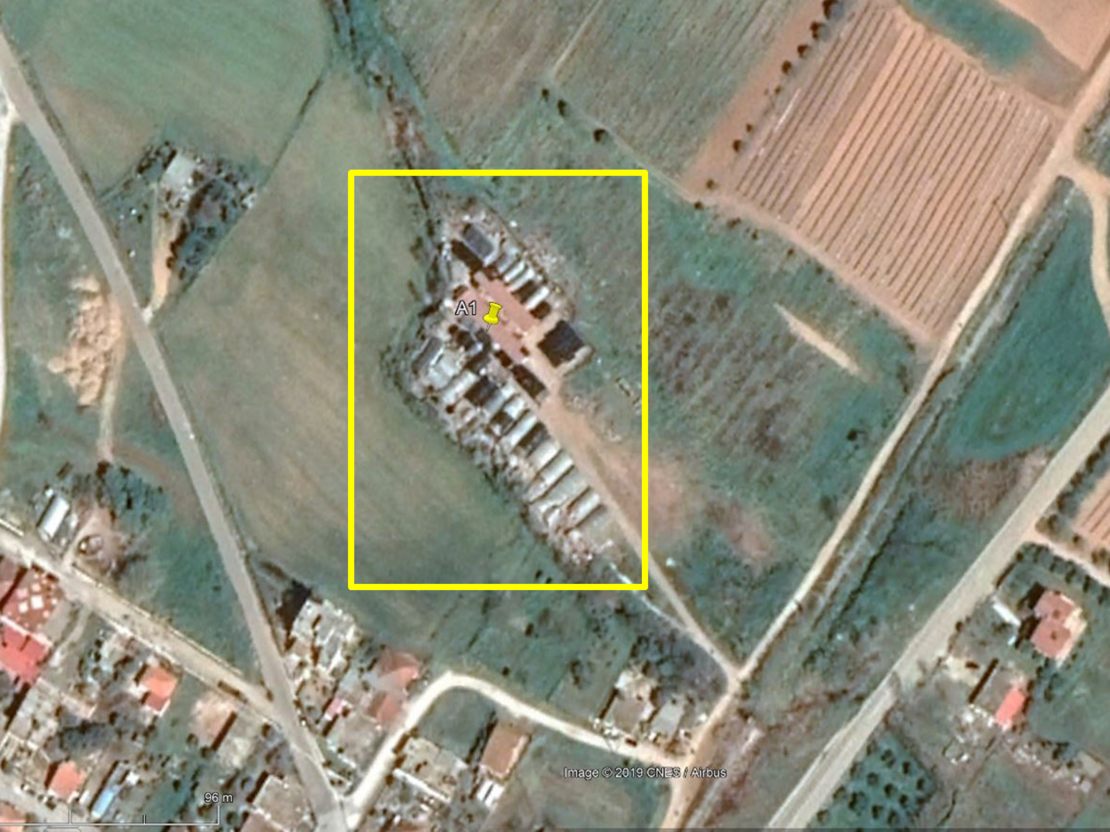This page contains automatically translated content.
Using satellite images to combat exploitation in Greek strawberry fields
 Image: Ioannis Kougkoulos, Kornilia Hatzinikolaou
Image: Ioannis Kougkoulos, Kornilia HatzinikolaouA consortium of modern slavery experts led by the Rights Lab at the University of Nottingham in the United Kingdom has helped the Greek government address a humanitarian crisis that developed in the strawberry fields of Nea Manoladas in southern Greece.
Using satellite technology, experts worked with Greek authorities to identify settlements of workers and then developed a decision model to prioritize victims most at risk. Combining different data sources and methods, they created a set of criteria to measure the level of worker exploitation in a settlement. The researchers then validated these criteria with a governmental as well as a non-governmental organization fighting labor exploitation.
This multi-method approach is a world first in the humanitarian sector and was published in the prestigious journal Production and Operations Management.
A large proportion of people exploited in the agricultural sector live in unregistered settlements off the streets. "To help them, they must first be found. The common method so far is to search the area on the ground. But we offer an efficient and resource-saving alternative, namely using satellite images from the air," explains Prof. Dr. Stefan Gold from the Department of Economics at the University of Kassel, who is involved in the research with colleagues from England, France, the USA and Greece. After analyzing the satellite data, employees can drive specifically to the identified worker settlements. "Using a system of mapping and surveys that we developed, living and working conditions are recorded on site. Now we can rank which settlement should get help first," Prof. Dr. Stefan Gold continued.
Tested in strawberry fields, applicable in the world
The method was tested in Nea Manolada. However, it can also be used in other large cultivation areas with precarious working conditions around the world, such as tomato fields in Italy or Argentine tobacco production. Another application of this remote sensing is migration flows. Currently, around 80 million people worldwide are on the run - more than ever before. Refugees are particularly threatened by these forms of modern slavery. Illegal residence permits, poor local and language skills, and a lack of financial resources increase the danger of ending up in exploitative working conditions out of necessity.
The localization of these settlements tested in the research project, with subsequent analysis of the situation on the ground and prioritization according to urgency using multi-criteria decision analysis, will make it possible to provide more targeted support to people in precarious employment in the future. This work was carried out in collaboration with the Greek National Rapporteur on Trafficking in Human Beings, the European Court of Human Rights (ECtHR) and the NGO G2RED.
In addition to Stefan Gold of the University of Kassel, participants included Ioannis Kougkoulos of the University of Paris-Dauphine (France), Selim M Cakir, Doreen S Boyd and Alexander Trautrims of the Rights Lab at the University of Notthingham (UK), Nathan Kunz of the Coggin College of Business at the University of North Florida (USA), and Kornilia Hatzinikoklaou of the Aristotle University of Thessaloniki (Greece).
Link to publication: https://onlinelibrary.wiley.com/doi/full/10.1111/poms.13496
Contact:
Prof. Dr. Stefan Gold
University of Kassel
Department 07 - Economics
Sustainable Business Management
Phone: +49 561 804-3082
Email: gold[at]uni-kassel[dot]de
Sebastian Mense
University of Kassel
Communication, Press and Public Relations
Phone: +49 561 804-1961
E-mail: presse[at]uni-kassel[dot]de